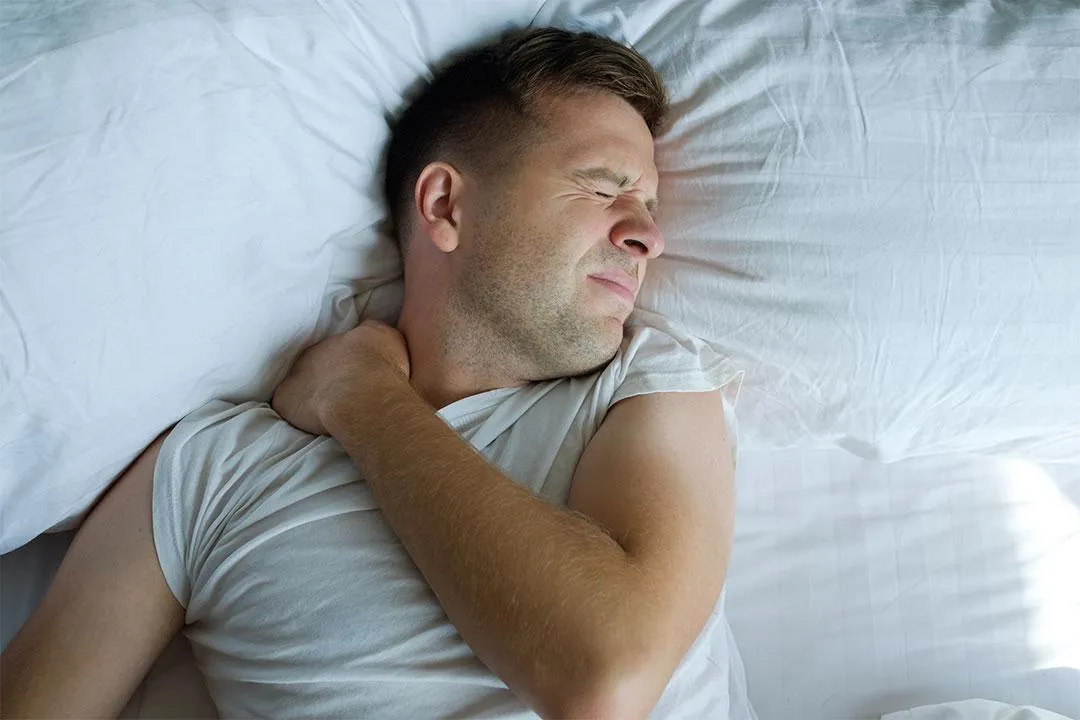Read our Blog

Sleep and Pain
SLEEP AND PAIN
These two can get caught up in a very vicious cycle with each other. You can’t sleep because you’re in pain. Lack of sleep impairs recovery and can increase your pain.
Ideally, we should be getting 6-8 hours a night of QUALITY SLEEP.
Sounds like a fairytail, right?!
It can be done…
Here are some tips and tricks you can start to implement right now to help increase the quality and length of your sleep.
Sunlight exposure within 60 minutes after the sun rises and before it sets. Early and late sunlight exposure helps to set your natural circadian rhythm. For optimal effects follow these parameters:
5-10 minutes on a clear day
10-20 minutes with partial cloud cover
20-30 minutes with overcast
Your viewing experience should not be through a window or sunglasses.
Do not stare directly at the sun.
What might this look like? Enjoying a cup of coffee/tea outside in the morning, going for a walk or jog, driving with your windows down.
Stop caffeine consumption at 12:00 pm (this includes coffee, tea, energy drinks, pre-workout)
No screen time 1 hour before going to bed (phone, TV, iPad)
Sleep in a dark quiet room
5-10 minutes of meditation prior to sleep. There are several apps that can assist you with meditation (Calm, Aura, Headspace are a few free apps)
Use pillows to bolster body parts for comfort
If you have shoulder pain, try sleeping on the opposite side with a pillow under your painful arm. This added space helps to ensure optimal blood flow to the shoulder joint and keeps it in a neutral position.
If you have hip pain, try sleeping on the opposite side with a pillow between your knees. This will prevent the joint from going into adduction/internal rotation which may put the irritated muscles/ tendons in a prolonged stretch position.
If you have neck pain, check your pillow. Ideally the pillow should put your head in a neutral position. If your pillow is too big, your head is tilted up. If your pillow is too small your head will be tilted down.
If you sleep on your back and experience low back pain, place a pillow under your knees.
Pain is extremely multifactorial and can be impacted by the nervous system in a variety of ways. Sleep is essential not just for muscle recovery, but also nervous system recovery. Improving the length and quality of your sleep can tremendously help improve your pain levels.
Maybe just start with 1-2 of these techniques. Don’t expect a drastic change the first night.
Be consistent for a few days. Everyone’s body is different. You may notice improved sleep by adding in just one of these techniques, or you might need all 6.
Whether you are currently experiencing pain or not, quality sleep is essential for everyone 😊
If you are struggling with pain, sleep, fitness, nutrition, or general health and wellness and would like help, click here to talk with one of our doctors of physical therapy. We can set up a time to discuss all of your struggles and frustrations and get you set up on a clear path to being the healthiest version of you!
Dr. Hannah Sweitzer, PT, DPT, OCS, CSCS
Our one-on-one treatment sessions ensure that you fully understand your body and take ownership of your health so that you can have control over doing the things you love!
Send us a Message
Let's Have a Chat
954 - 519 - 4185
Find us at
2852 E Oakland Park Blvd
Fort Lauderdale, FL 33306
2024 REVIVE PHYSIOTHERAPY | ALL RIGHTS RESERVED


